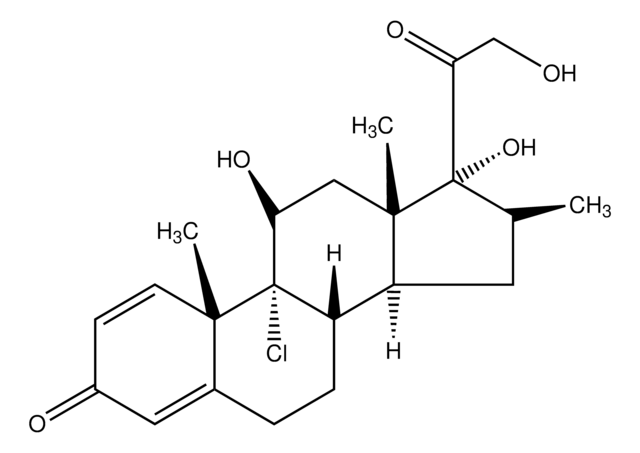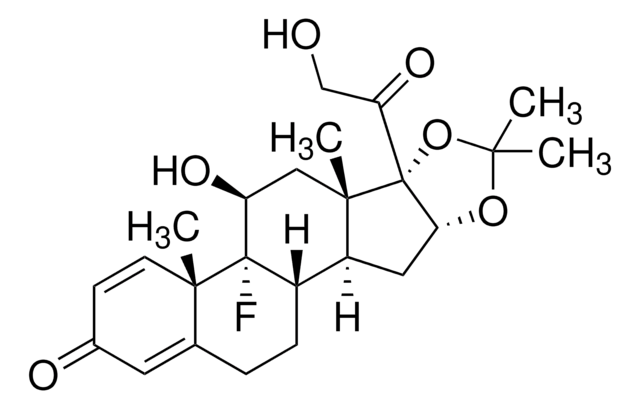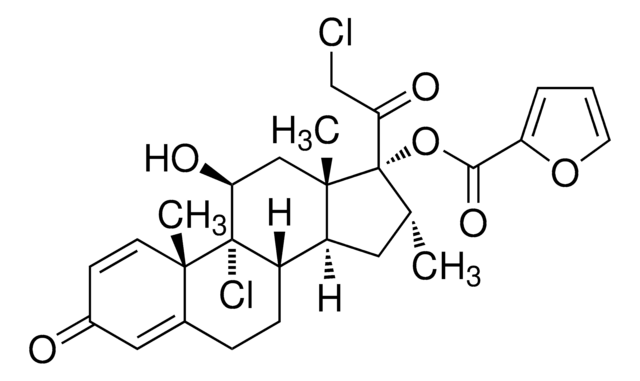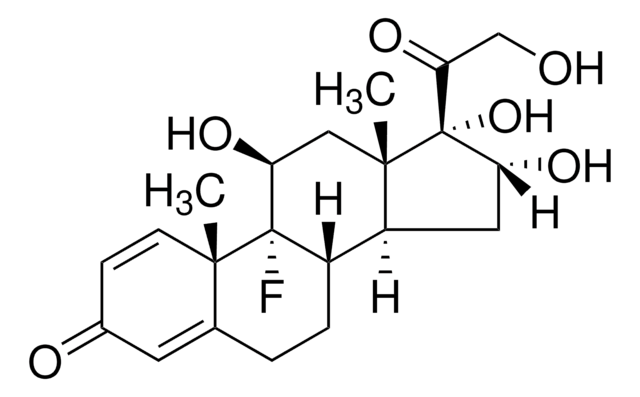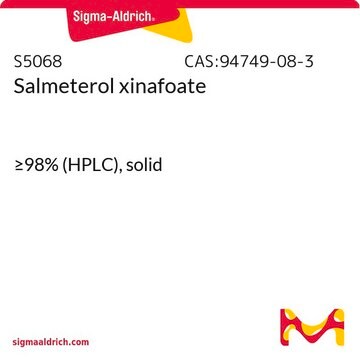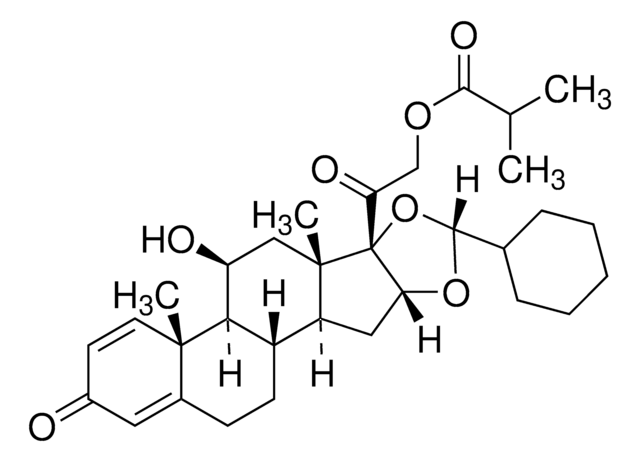B7777
Budesonide
≥99%
Synonym(s):
16,17-Butylidenebis(oxy)-11,21-dihydroxypregna-1,4-diene-3,20-dione
About This Item
Recommended Products
Assay
≥99%
form
powder
originator
AstraZeneca
SMILES string
[H][C@@]12CCC3=CC(=O)C=C[C@]3(C)[C@@]1([H])[C@@H](O)C[C@@]4(C)[C@@]2([H])C[C@H]5OC(CCC)O[C@@]45C(=O)CO
InChI
1S/C25H34O6/c1-4-5-21-30-20-11-17-16-7-6-14-10-15(27)8-9-23(14,2)22(16)18(28)12-24(17,3)25(20,31-21)19(29)13-26/h8-10,16-18,20-22,26,28H,4-7,11-13H2,1-3H3/t16-,17-,18-,20+,21?,22+,23-,24-,25+/m0/s1
InChI key
VOVIALXJUBGFJZ-KWVAZRHASA-N
Gene Information
human ... IFNG(3458) , IL5(3567) , NR3C1(2908)
rat ... Nr3c1(24413)
Looking for similar products? Visit Product Comparison Guide
Biochem/physiol Actions
Features and Benefits
Signal Word
Danger
Hazard Statements
Precautionary Statements
Hazard Classifications
Acute Tox. 4 Oral - Aquatic Chronic 3 - Repr. 2 - Skin Sens. 1 - STOT RE 1 Inhalation
Target Organs
Adrenal gland
Storage Class Code
6.1C - Combustible acute toxic Cat.3 / toxic compounds or compounds which causing chronic effects
WGK
WGK 3
Flash Point(F)
Not applicable
Flash Point(C)
Not applicable
Personal Protective Equipment
Regulatory Listings
Regulatory Listings are mainly provided for chemical products. Only limited information can be provided here for non-chemical products. No entry means none of the components are listed. It is the user’s obligation to ensure the safe and legal use of the product.
JAN Code
B7777-VAR:
B7777-250MG:
B7777-50MG:
B7777-BULK:
Certificates of Analysis (COA)
Search for Certificates of Analysis (COA) by entering the products Lot/Batch Number. Lot and Batch Numbers can be found on a product’s label following the words ‘Lot’ or ‘Batch’.
Already Own This Product?
Find documentation for the products that you have recently purchased in the Document Library.
Customers Also Viewed
Articles
Bioactive small molecules for immune system signaling target identification/validation and antibiotics, antivirals, and antifungals offered.
Our team of scientists has experience in all areas of research including Life Science, Material Science, Chemical Synthesis, Chromatography, Analytical and many others.
Contact Technical Service
